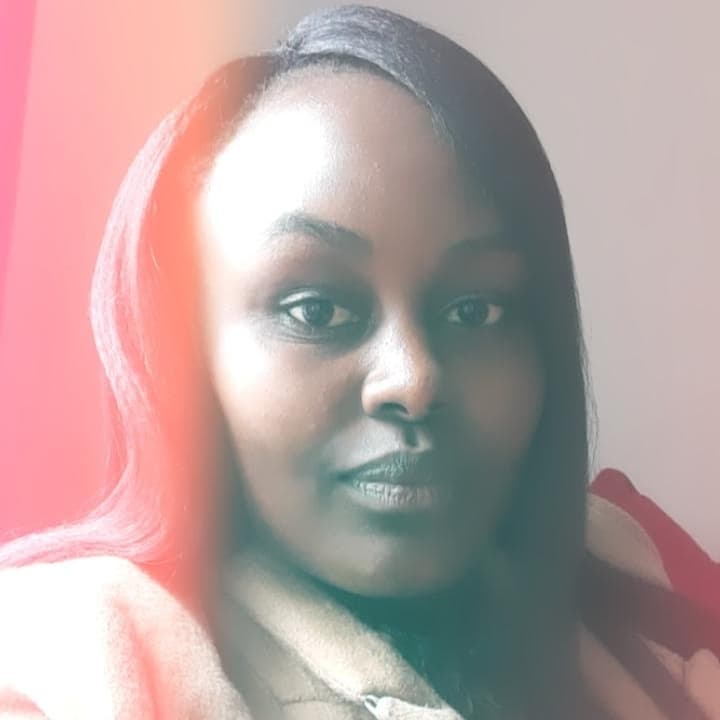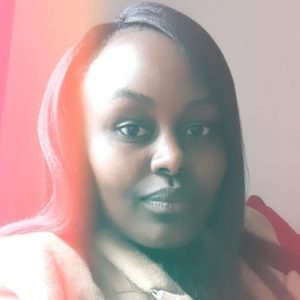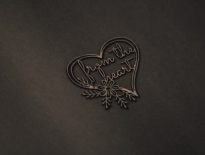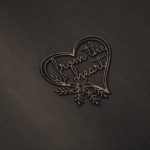
Naomi Waweru
Interview by Lise Kiberwa (Rwanda), edited and curated by Frank Njugi (Kenya)
1. Hello Naomi, It is a pleasure talking to you. You have been termed a strong Kenyan voice in the contemporary African poetic space. When did you start writing and what ignited your interest in poetry primarily?
It is a pleasure as well. I picked up writing at around twelve. That is essentially when a lot of self-awareness and identity crises begin to roil up in a person, and I had a lot of say. Journaling began as a way of keeping myself up to date with this surge of emotions. I had always been fascinated by words from a very tender age. At around the age of ten, or say, the standard age when a proper command of language develops in a child, I had an extraordinary command of the English language. My imagination sparked and multiplied almost naturally at that tender age. I got access to a small Oxford dictionary at around that age as well. The moments spent by my peers playing and looking for the next big mischief to embark on were spent by myself looking for stories and looking into piles of newspapers for big words. When I was not throwing tantrums at my mother’s feet, I could be found somewhere struggling to pronounce big words. I remember having trouble with the word ‘venue’ particularly.
My interest in poetry sparked in high school when I was introduced to poetry in literature classes. I found myself strangely understanding these poems and answering the questions on form, persona, and meaning exceptionally well. I was reading poems by John Sibi-Okumu, Okot p’ Bitek, and Antonio Jacinto among others as a requirement of the syllabus, but they were also transporting me elsewhere. They made me want to find within me a language I could also use to express myself. ‘Grass will grow’ by Jonathan Kariara made me long for a poem of mine being in print somewhere. ‘Shall I compare thee to a summer day’ made me feel like I could write a poem similarly profound. At around that time, the Kenyan national newspaper, Daily Nation had started publishing poems in their Sunday pull-out. I remember reading a striking poem and writing an after poem. I shared it with my English teacher who after reading it, asked how long I had been writing. This question made me wish that I had been writing poetry my whole life. My English teachers believed in me more than I believed in myself. I found myself looking forward to literature classes. I was fascinated by how an experience of… say war, being imprisoned, or famine, could be relayed briefly, structurally and beautifully and one still ended up reading into the whole picture. After that one poem (I can’t tell where it is now and I can attest that it was very naively and terribly written), I wrote a second, a third, and several others, and I have never been able to stop myself.
2. In your bio you usually define yourself as “one who presents an adoration of the body”. When did this start and what made you pick up literature as the medium of doing this?
I cannot point out a single moment when the realisation of myself as “one who presents an adoration for the body” started. If anything, a series of experiences and life events have led to this. I found my creative energy being directed to relaying different processes of the body; its reaction to heat, cold, death, grief, satisfaction and dissatisfaction – all the science. The first point of entry to the body is the outermost skin – the first point of touch/contact. Whatever happens inside of it happens afterwards. The receptors and nerve transmissions and the operation of the brain and all that science that makes us aware that we have been touched or triggered happens inside the body. The body is a dwelling place for a myriad of emotions and experiences, and in my writing, I am asking that it is preserved. How are we preserving the body? – By tending to it, and being mindful while at it. By nourishing it. By practicing wellness. My writing of the body is also portraying what it is capable of. I have the belief that the body is sacred. Around me, the body has been used as a tool of expression, a tool of protest. For a body to be used for activism, you can not underestimate its sacredness. That the body will be used to stir a reaction means that for the elements of our experiences that we have not found the medium or the language to relay or advocate for, we can look to the body as a tool that speaks for us.
3. Would you say writers and poets in particular have a responsibility of using their craft as a championing tool? If yes why is this so?
I cannot speak for anyone and I do not see myself as having the power to decide what writers and poets can do with their work, nor spell for them their responsibility. I believe that art is personal and as much as giving it out to the public makes it look like we are giving the latter the liberty of use and an ownership stake, the intention and motive behind creating an individual work of art remains innately with the creator. That said, I believe that poets and writers should be left to decide what they want their work to do to others, and their responsibility at that, for themselves.
4. In your works there seems to be a frequency in analogies that mention God. What is your relationship with religion like and is it that chaperone you perhaps employ to guide you in your advocacy for the body maybe?
My relationship with religion is inspired independently by the existence of God, more than it is informed by the doctrines, procedures and routines of it. God appears to me as beautiful; His ability to transcend time and space, the knowledge that in any particular moment of my day, He is moving within me, inside and outside of myself. I am fascinated by these particular Biblical descriptions of His essence, that God is patient, God is kind, He does not envy, and He is not boastful. This appears to me as an unconditional kindness of God. I have likened this essence to selflessness. And ultimately, God to me is love and love to me is God. And I know too that His essence compels us to withhold nothing from Him. This appears to me as an act of a God who is drawn to vulnerability. ‘I am who I am’ occurs to me as a call to say, you will take me as you find me because I am presenting myself as I am to you, and that my existence does not exempt its co-existence with imperfections, and that I am presenting this nature of myself to you as well. ‘Lean not on your understanding’ tells me that I am valid even in my confusion because He is ironing out the folds.
Read – Curating Spaces for Literary Creatives: A Conversation With Mapenzi Karisa
And I imagine that God, aside from the formlessness and limitlessness associated with Him, is capable of taking the form of a body. The church is said to be the Body of Christ. So He has a physicality attached to Himself. In my poems, I embody a physicality of the body as an analogy of God’s, a body that has kind and open hands, a body I can lean into, a body that is composed entirely of love, that has a pocket-sized journal on which He puts down all these requests I present to Him. This whole essence of God as an accessible body, is the chaperone that I could say I employ to guide me in my advocacy for the body. If He is all these beautiful things I have described above, then He is inhabitable. In my writing of the body, I am likening the openness of my body, and your body, to the openness of God’s. I am saying, we are capable of being held within our bodies and feel safety. We can adequately dwell in our bodies. We can be dwelling places for each other. We can be dwelling places for others as well. Let us open ourselves up, meanwhile.
5. In a recent interview with Konya Shamrusmi you said “The body in my poems is a medium of communication”. Would you say all human behaviour or interactions are determined by the essences we possess or is it something exclusive to some and not others?
Definitely. All human behaviour or interactions are determined by the essences we possess, the core of what we are, our ethos, what we have been through, how we have been raised, are the heart and soul of our behaviour and character. We thrive on what we have constantly seen, interacted with, and what we have experienced. Our reactions to different situations, experiences and life events are definitely informed by the essences we possess, what we are at the core, what we have been trained to do, what we have seen others do, and what, reading from our ethos, we judge is right to do. All these virtues; empathy, sympathy, and accommodativeness, are a product of the environments we have been raised in. The bone of contention, I would say, comes from what we choose to do with our essences. Some people choose to be defined by them, others have allowed room to react differently to the norm. The liberty, therefore, to be guided by our essences, is dependent on an individual.
6. Of all your works, which particular one do you feel served the intended purpose you set out for when you wrote it at first?
I feel selfish for selecting this already because all my works have a purpose I intended them to meet. But the poem, ‘I have a tribute that stretches from my navel’, is one I want to talk about. I wanted to mourn my father. I wanted to express these mindless rituals and these menial activities that I have practised time and time again in order to grieve him, and at the same time convince myself that because I cannot access his physicality, he does not cease existing. There is one thing about bridging the distance of a person that is alive and another thing about bridging the distance of one that is deceased. One can be clueless about how to deal with the latter. I wanted to make this distance intimately definable. I wanted to know that I can look at this poem, read particular lines of it and instantaneously reach him. At the same time, I wanted to relay this experience of my loss to the reader and let them into these mindless rituals I engage in to reach him. A reader, after interacting with the poem, wrote and said, “You wrote of difficulty and made it beautiful.” And I think that is what I wanted to achieve in writing the poem; expressing the difficulty in a beautiful language.
7. Which individuals in the literary world would you say inspire you with their use of Literature as an upholder for what they believe in and why?
I adore a whole catalogue of artists. To talk about them, I would have to write volumes of books. And this is because they have helped me in my journey of self-discovery and influenced my writings as well. My adoration is very much for the brilliant and daring works of the likes of William James Lofton, alias mrjamespoetry, who intrigues me with the use of language to portray belief in God, advocacy for freedom and human rights, trauma and depression, identity, and healing processes. The adoration spans to the likes of a Kenyan writer and mental health expert, Onyango Otieno, a name that forms often on my lips, who uses his writings and poetry to relay difficult human experiences like rape, suicide, depression and goes ahead to advocate for body positivity, body and mental mindfulness and wellness as his ways of healing himself. I will forever thank Donte Collins for the audacity. This adoration goes on to a Ghanaian contemporary poet, Henneh Kyereh Kwaku whose enthusiasm for literature occurs to me as a boldness and a higher calling. My peers, who give me no excuse to be ordinary – Martins Deep whose infusion of art and poetry occurs to me as dauntless and of a higher calibre, Akpa Arinzechukwu for their openness of language, Frank Njugi for the richness of imagination and the relatability of his experience and environment, Roseline Mgbodichinma Anya Okorie whose name I adore and ask that it is always written and said in full, for her femininity and boldness. Tryphena Yeboah personally assures me that I can write of difficulty beautifully. Warsan Shire, Safia Elhillo, my absolute and bold darling Itiola Jones, I could go on. All these are just bold, beautiful and unapologetic in their use of Literature.
8. Of all your works, the most revered one seems to be the Short story Sanctum. What inspired the language you used to write this masterpiece?
First of all, I’m still not over the applause that this story is still receiving and I think there’s never really getting used to it. Also, the fact that it is published by Lolwe, in that absolutely gorgeous font. In writing this story, I wanted to give the reader the openness of my language. I wanted to ensure that this difficulty, this grief, and the moments in between are brought to the uppermost surface because I choose an open language to do so. I wanted to use a language that gives the reader access to the spine, the flesh, and the tissue of my story. I wanted to give them easy access to the characters, their emotions, their journeys, their reactions, their internalisation of the difficult and the easy moments. I often have this objective at the back of my mind when composing my poetry or prose; does the language make me want to wear my work on my skin and by reading the said work, do I want to substitute my skin with it? I am often compelled to describe difficulty in a beautiful language. The readers of the story have also described the style of delivery I used as poetic. And I think this is what else I was trying to achieve in the language I used – the poetic aspect of it all. Poetry is necessary in all situations. Poetry is also necessary in my prose.
9. Lastly, what should we expect from you in the future concerning your use of writing as the avenue for your advocacy?
Expect thunderstorm and an abundance of it. Expect the abundance of a writer who is learning that her poetry matters, her voice matters, and that people want to hear from her experiences. Expect the abundance of a writer who is leaning into herself more, listening to her body, digging inside herself for stories that ask to be unburied, experiences that asked to be relayed, and that they can look to her writing as their therapy. Expect beautiful stories and meaningful conversations on the body. Expect the boundlessness of her vulnerability and the absolute intentionality of her advocacy for the body. And most of all, expect all the absolute mushiness possible. The mushiness stays.
 Naomi Waweru (she/her), is inspired by love, vulnerability, the yearning of bodies to be free in their connection, and has an eye for tradition and culture. Her writings present an adoration for the body. She portrays it as your first sanctuary. She has been published and is forthcoming in Lolwe, Ta Adesa, Olney Magazine, Clerestory, Delicate Friend, Neurological , Overheard, Kalahari Review, Poems for the Start of the World Anthology, Ampleremains, Peppercoast, Afroliterary, and elsewhere. Reach her on Twitter and Instagram.
Naomi Waweru (she/her), is inspired by love, vulnerability, the yearning of bodies to be free in their connection, and has an eye for tradition and culture. Her writings present an adoration for the body. She portrays it as your first sanctuary. She has been published and is forthcoming in Lolwe, Ta Adesa, Olney Magazine, Clerestory, Delicate Friend, Neurological , Overheard, Kalahari Review, Poems for the Start of the World Anthology, Ampleremains, Peppercoast, Afroliterary, and elsewhere. Reach her on Twitter and Instagram.







